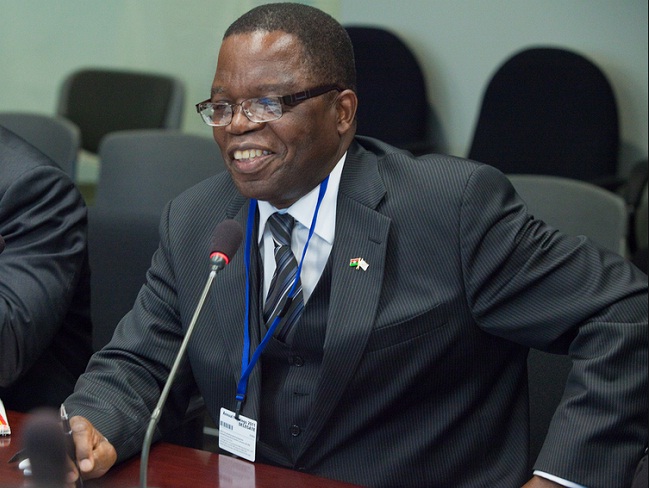The Joyce Banda administration is contemplating reverting to a managed exchange rate regime as a way of containing runaway imported inflation which has seen Malawians struggling to buy basic commodities.
A senior Ministry of Finance official has confirmed this development.
However, the International Monetary Fund (IMF) has warned against scrapping the floating exchange rate in favour of a managed exchange rate, saying such a move would have detrimental effects on the economy.
The government official, who opted for anonymity, said it is now the government’s thinking that in the absence of substantial foreign exchange inflows from donors, the kwacha cannot be left to float so freely.
“The government has rightly observed that with reserves below one month of import cover and without any sign of improvement in the near future, the free floating currency is not sustainable for Malawi at the moment,” said the official.
The official said the Ministry of Finance has been instructed to prepare a special paper to be presented to the IMF in which the Malawi government will present its argument and proposal for a return to the managed exchange rate.
“The government will attempt to convince the IMF to buy the idea and make adjustments to the Extended Credit Facility agreement,” said the official.
“It is the intention of the government to implement such a key policy shift without agreeing with the IMF.”
However, IMF Resident Representative Ruby Randall, reacting to an inquiry from The Daily Times on the matter, said the Fund is currently not aware of any intention on the part of the authorities to change their policy position.
“The Malawian authorities committed to the ongoing flexibility of the kwacha in order to allow the exchange rate to better equilibrate foreign exchange supply and demand,” Randall said.
“This policy stance helps to create an environment that encourages foreign exchange inflows rather than outflows so as to meet the country’s foreign exchange needs, and facilitates the accumulation of international reserves as buffer to external shocks,” she said.
She said in the absence of adequate reserves to defend the exchange rate by selling foreign exchange to the market, any attempt by the authorities to fix the exchange rate would result in severe rationing and the re-emergence of an active parallel market.
“The best course of action is to stay the course with the current exchange rate policy and pursue prudent fiscal and monetary policies to help contain aggregate demand, while mobilizing available resources to help cushion the impact of the adjustment on the poor and vulnerable,” said Randall.
Finance Minister Ken Lipenga, when asked to comment on the matter yesterday, emailed and said: “The story is not true. Government has no such intentions. Thank you.”
Earlier last week, Reserve Bank of Malawi Governor Charles Chuka told a Bankers Association of Malawi (Bam) dinner in Blantyre that the central bank was for the maintenance of a liberalised exchange rate.
Chuka, however, admitted that the kwacha was floated within a constrained framework and that it was still strongly supported by exchange controls on capital transactions.
“Movements of funds across the border for investment, savings or speculation is prohibited,” said Chuka, adding: “You are even prohibited from holding onto dollars without permission. It is currently illegal to quote or make payments in hard currency.”
He said there is still a limit to which the Kwacha can depreciate.
He said while it is difficult to estimate that limit, it is definitely the amount of money to purchase hard currency that matters most.
“This is where the Reserve Bank of Malawi comes in – to balance the supply of money to economic activity and in so doing contain inflation and exchange rate stability,” said Chuka.
He noted, however, that such type of work is made extremely difficult when the government of the day is forced to print money.
“That is why the government has committed itself to zero domestic borrowing in order to ensure early attainment of macroeconomic stability and thereby help Malawians to have a chance to improve their lives. Growth and job creation requires a stable environment; we are not yet there, and please do not rock the boat,” Chuka said.



.jpeg&w=60&q=100&h=60)









